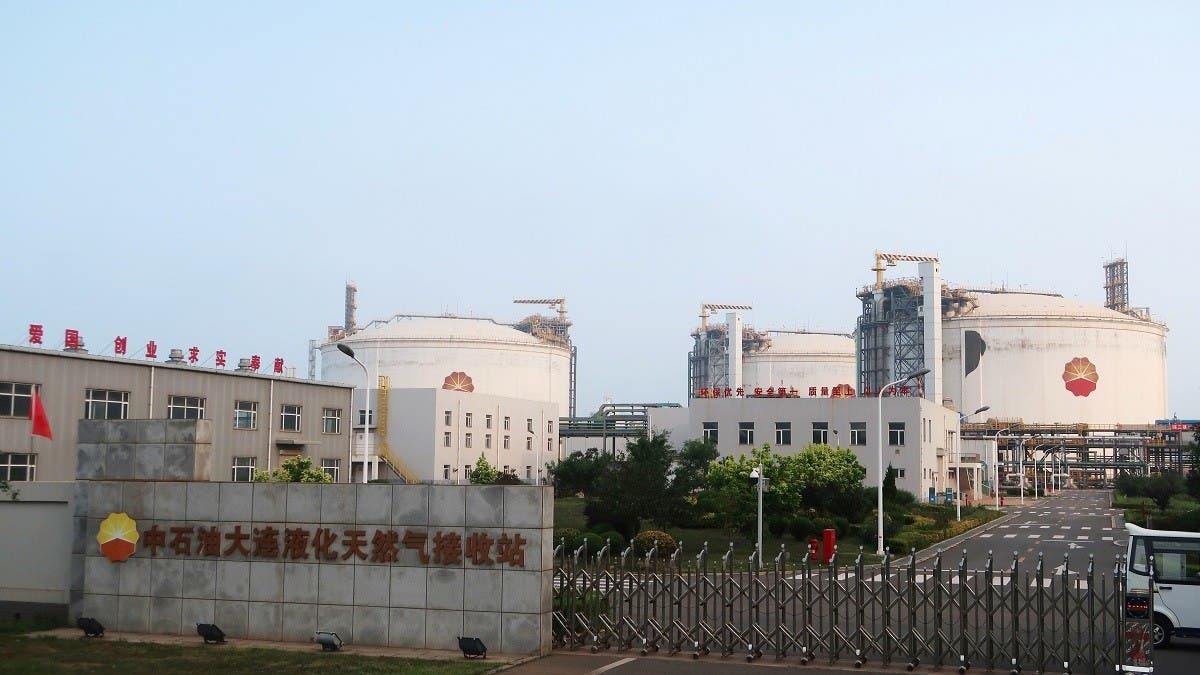The threat of disruptions to Europe’s gas supply from Russia, in the event the West imposes sanctions if Russia invades Ukraine, has prompted a debate about the need for long-term liquefied natural gas (LNG) contracts.
The United States has in recent weeks asked Qatar and other major gas producers whether they can send extra gas to Europe if Russian flows are disrupted, a source said.
For the latest headlines, follow our Google News channel online or via the app.
Some major LNG producers, such as Qatar, and energy companies that have long-term contracts say Europe should rely less on spot contracts and more on long-term contracts for its energy needs.
Approximately 70 percent of LNG trade globally is estimated to be sold via long-term contracts, but in Europe spot and short-term contracts represent around 45 percent-50 percent.
What are the benefits of long-term contracts?
Long-term contracts can run for between 10 and 25 years.
Generally, gas producers want long-term commitments for capacity expansions at capital-intensive projects.
Qatar prefers long-term, generally oil-indexed contracts for revenue stability, Luke Cottell, EMEA LNG analytics lead at S&P Global Platts, said.
Other producers, such as the United States, need long-term contracts to finance their liquefaction projects, typically selling a proportion of upcoming production to traders, who have the freedom to sell it to Asia or Europe.
“As a new wave of LNG supply comes online globally in 2025 and 2026, there is a risk this could push prices much lower,” Cottell said. “While sellers now want spot exposure and buyers don’t want spot exposure, in five years’ time the situation might flip.”
What is the European Union’s position?
The European Commission says long-term contracts could inhibit free flows of gas in Europe.
As a reaction to single players, such as Russia being able to take advantage of a dominant position, EU policymakers have encouraged spot trade that can allow customers to benefit from reduced prices when supplies are abundant.
They also avoid customers being locked into using fossil fuel for years ahead as the EU aspires to achieve net zero emissions by 2050.
“European gas market liberalization has delivered a large benefit to consumers, resulting in lower-than-average prices than traditional oil-linked contracts from Russia,” said Felix Booth, head of LNG at energy intelligence firm Vortexa.
The European Commission said late last year that long-term gas contracts should not run beyond 2049 and should not create barriers to entry for renewable and low-carbon gases.
Producer countries, however, often say spot trade has aggravated price volatility, especially in the current climate of tight supplies following the disruption of the COVID-19 pandemic and the economic rebound.
How is the energy transition affecting the market?
James Huckstepp, manager of gas analytics at S&P Global Platts, said the energy transition has raised concerns that gas demand will drop in the next five-to-10 years, when Europe is using more green energy, such as hydrogen.
Long-term oil-indexed contracts have been profitable over the last year for producers and traders and could continue to be for the next couple of years, but the majority of these contracts has lost money over the last decade, Huckstepp said.
Who is making money?
Last year’s gas price spike meant windfall profits for many.
“In the last two months, big oil companies and utilities should have made huge margins from selling US LNG priced at around $6/MBtu for around $30/MBtu in Europe,” said Guy Broggi, an independent LNG consultant.
There were 80 cargos a month coming from the United States and each cargo was making around $60 million in net profit, Broggi said.
What is the issue with destination clauses?
Qatar and some Asian producers such as Indonesia and Malaysia used to enforce destination clauses that limit the delivery of gas to certain markets to prevent it being re-routed to other markets.
Such clauses are illegal in Europe and rules in most EU countries do not prevent LNG being sent on to other countries.
Tamir Druz, managing director at Capra Energy Group said long-term contracts played an important role, but limited the flexibility, diversification and profit opportunities that spot and short-term deals allow.
Eliminating destination clauses in the EU in the 2000s and Japan more recently helped to make long-term deals more attractive, he said.
Read more: Biden says he will designate Qatar as a major non-NATO US ally


 World3 years ago
World3 years ago
 World3 years ago
World3 years ago
 Business11 months ago
Business11 months ago
 Entertainment7 years ago
Entertainment7 years ago
 World7 years ago
World7 years ago
 Entertainment7 years ago
Entertainment7 years ago




